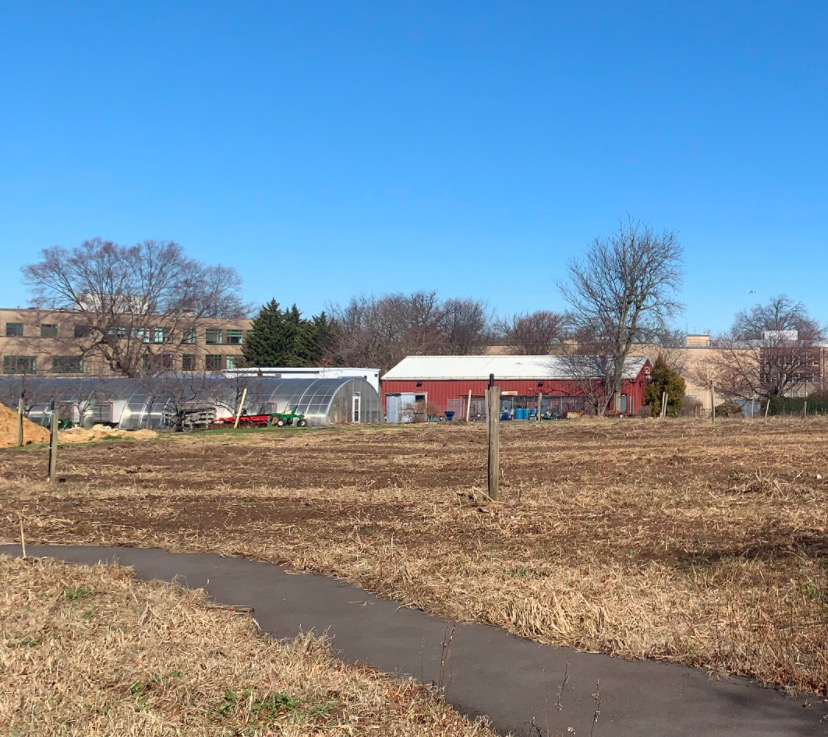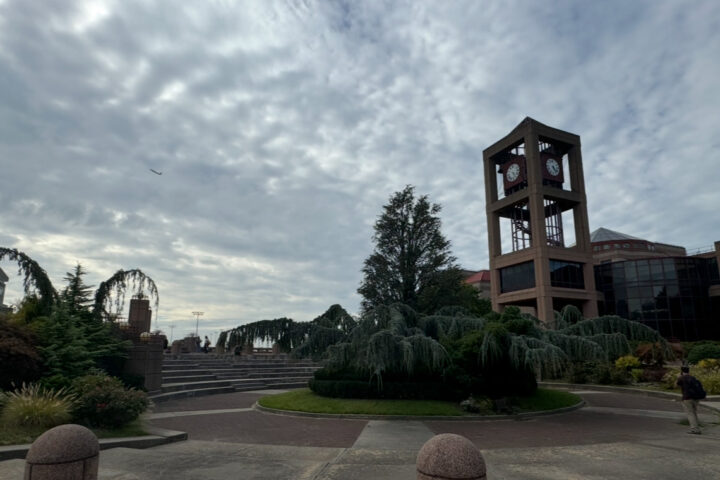On the path between Queens College’s main campus and Queens Hall, students pass an unexpected neighbor: a 3.8 acre working farm. Most people don’t expect to see cows, chickens, and alpacas right next to a college campus in the middle of Queens — but that’s exactly what you’ll find at John Bowne High School.
John Bowne is a public high school with a specialized career and technical education program in agriculture, one of the only ones of its kind in New York City. NYC is home to a wide range of high schools that focus on unique fields — from aviation to performing arts to marine science — but Bowne’s agricultural program is especially rare in an urban environment. Its four-acre “land laboratory” has operated since before the high school itself was formally established. Over time, as both QC and Bowne expanded, the land available for farming has shrunk—but the program remains active and robust.
Today, more than 500 students are enrolled in Bowne’s Animal, Plant, and Agriscience Institute. Students begin agricultural training the summer after their freshman year, tending their own crop plots and working with livestock. They later specialize in either plant or animal science and participate in internships ranging from local veterinary clinics to full-time summer placements on farms across New York State.
Students get hands-on experience raising animals, planting and harvesting crops, using lab equipment, and learning about sustainability, environmental science, and even agribusiness. The farm includes a large animal barn, poultry house, orchard, and greenhouse — all managed and maintained by high schoolers. It functions as both an outdoor classroom and a fully operational urban farm.
“With me being in honors, we learn more about the animal science world, but we grow all types of vegetables, herbs, and flowers,” said Haley Russo, a Junior in the agricultural honors program. “When you get into the agricultural program your freshman year, you need to complete what we call Summer Land Lab, where you have to grow and maintain a 15-by-15-foot plot of land.”
All of the animals — including miniature horses, alpacas, sheep, goats, and chickens — are donated from local farms and zoos, and they stay on the property year-round. Students sign up for volunteer hours during breaks to make sure the animals are cared for.
In addition to providing a unique high school experience, the program has produced veterinarians, animal care technicians, environmental scientists, and agricultural educators, along with countless alumni who carry those skills and experiences into unrelated fields.
The presence of the farm may seem unusual in an urban college environment, but its roots are deep, and for Bowne students, it remains both a classroom and a workplace. For QC students walking past it on the way to class, it’s a reminder that in the middle of the city, agriculture is still very much alive.











